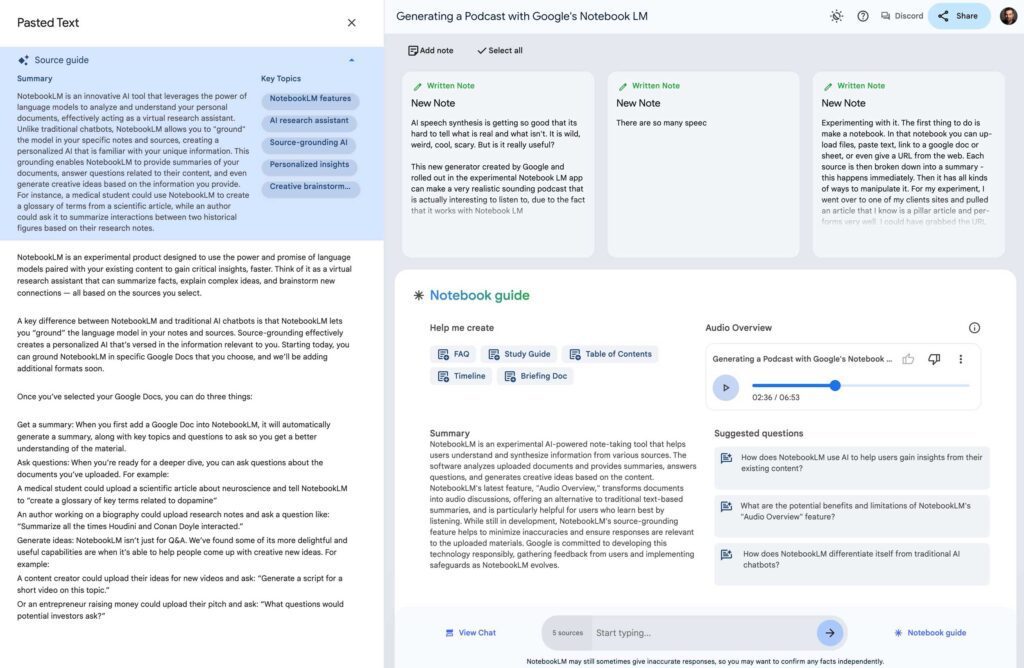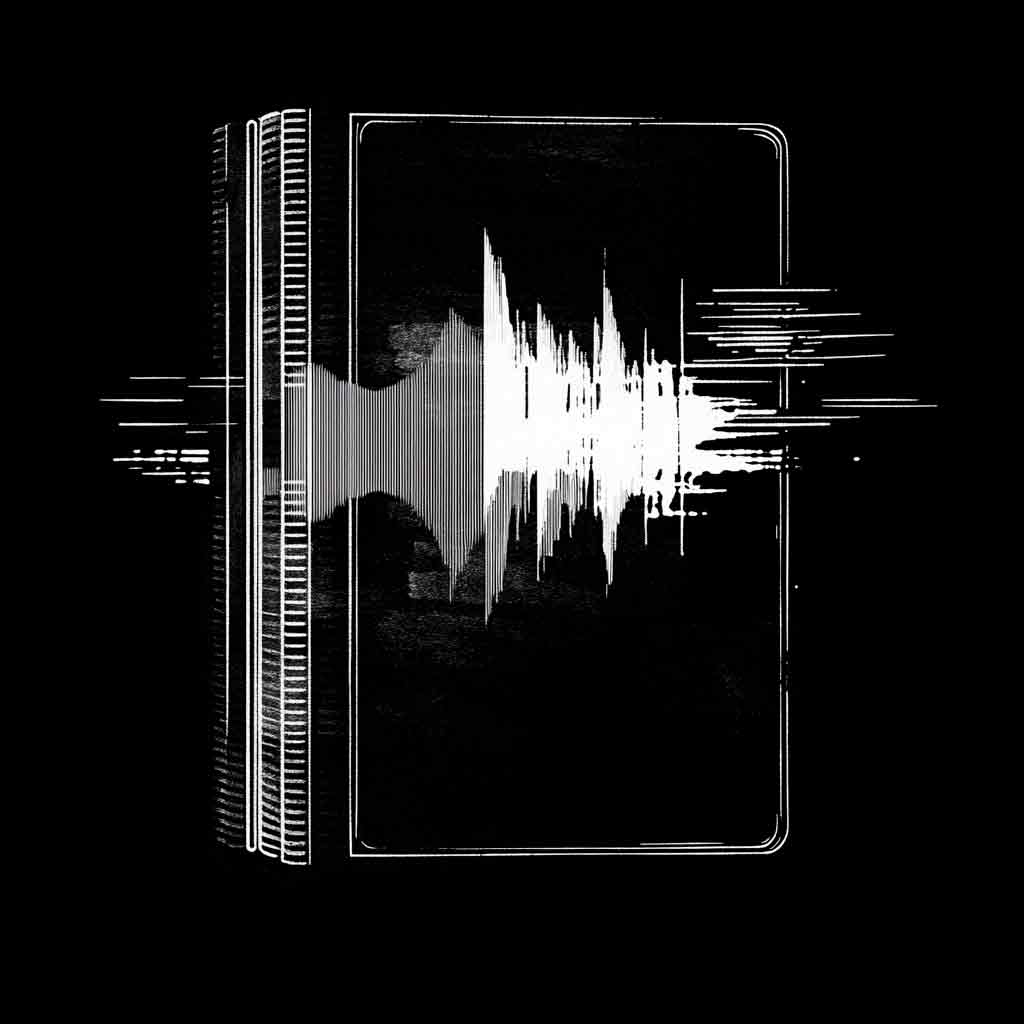Generative AI is advancing so quickly that it now seems capable of doing almost anything. From writing and creating images to generating videos, speech, sound effects, and even music, AI can replicate nearly every aspect of content creation. However, the real challenge lies in combining these elements in a purposeful way—crafting something that feels genuine and unique, especially in formats like podcasts, where the human touch makes all the difference.
Traditionally, creating a podcast requires preparation and collaboration. Research the topic, outline the discussion, gather hosts, and record the conversation. After that comes editing: trimming silences, adjusting audio levels, adding intro music, and much more. The process, while rewarding, is time-consuming and complex.
With AI’s help, some of these tasks have become more manageable. Tools like ChatGPT or Claude can generate scripts, while platforms like ElevenLabs create realistic voiceovers. AI can also generate music, sound effects, and even cover art. But even with these tools, crafting a podcast still demands significant assembly. Editing voices, tweaking scripts, and creating natural-sounding dialogue—complete with human-like pauses and tone—requires finesse. While AI has made strides, up until now, creating a fully AI-driven podcast has still required plenty of hands-on work.
Google’s NotebookLM app, an experimental tool from Google Labs, is pushing the boundaries of content creation by making it possible to generate conversational podcast episodes with just a few clicks. This latest development goes beyond simple text summaries, synthesizing one or more documents into an audio-driven that sounds like a traditional radio show or podcast. The new “Audio Overview” feature marks a significant step toward the future of turnkey generative content, at least when it comes to podcasting. Here is an example of a completely synthetic AI-voice discussion about this very subject (so meta) generated in about a minute using Audio Overviews (Deep Dives). These are not real humans:
Listen to a Podcast Episode Made by AI
NotebookLM was initially designed to help users manage and summarize large volumes of information. Users upload documents, and the software offers summaries, answers questions, and generates ideas. The new Audio Overview feature takes this a step further by transforming those text-based summaries into audio discussions, reminiscent of an NPR-style talk show.
To generate the full conversation above, we added a series of documents, articles and notes about this tool. Here is a screenshot of the interface and some of the info that was added.

The app produces a seamless conversation between two voices, one male and one female, turning any text into a dialogue that feels engaging and informative. Though still in its early stages, this capability offers a glimpse into how AI might soon create full-fledged podcasts or educational audio content from any source material.
What Can You Do with NotebookLM?
NotebookLM isn’t just a static summarizing tool; it’s built to help users interact more deeply with their documents. You can upload Google Docs, research notes, articles, or even pitch decks, and NotebookLM generates a summary for you. From there, you can ask questions to probe deeper into the material or even generate new ideas based on the content.
For instance, a medical student might upload a neuroscience article and ask the app to create a glossary of key terms related to dopamine. A biographer could upload research notes and request a summary of interactions between historical figures, like Houdini and Conan Doyle. This Q&A function adds depth, helping users understand content on a level that goes beyond surface-level summaries.
From Audio Overviews to Fully-Generated Podcasts
With the new Audio Overview feature, Google has brought audio into the equation. While many learning tools focus on visual or written summaries, this audio option caters to those who prefer to learn by listening. You can now listen to a synthesized discussion of your content, adding a layer of interactivity that text alone doesn’t provide.
However, the current version of this tool has its limitations. There are only two voice options, and some words are mispronounced, which can break immersion. There’s also no way to edit the output within NotebookLM itself, although users can download the audio as a WAV file and edit it externally if needed.
Despite these minor issues, the ability to quickly convert a document into an engaging audio format is a powerful tool. It opens the door to creating educational podcasts or business content with minimal effort—essentially turning any document into a podcast-ready script.
The Future of AI-Generated Content
As AI tools like NotebookLM evolve, the potential applications are vast. For content creators, entrepreneurs, and educators, this type of technology could revolutionize the way they share information. Instead of spending hours developing a podcast or script, users can upload existing content, ask a few questions, and let the software handle the rest.
The possibilities for creative idea generation also stand out. A content creator could ask NotebookLM to generate a script for a short video, while an entrepreneur could test their pitch by asking what questions potential investors might raise. This flexibility allows users to approach content generation from multiple angles, using AI as a tool to streamline and enhance their creative processes.
What Comes Next?
Google’s NotebookLM is still in the early stages, and the limitations suggest that more features and refinements are on the horizon. Improved voice quality, more customization options, and better pronunciation are likely to be key areas of development. As these tools grow more sophisticated, it’s easy to imagine a future where generating a high-quality podcast from any written content is as simple as pressing a button.
For now, the Audio Overview feature offers a compelling glimpse of what’s possible. While far from perfect, it shows the potential for AI to transform not just how we consume information, but how we produce it.









